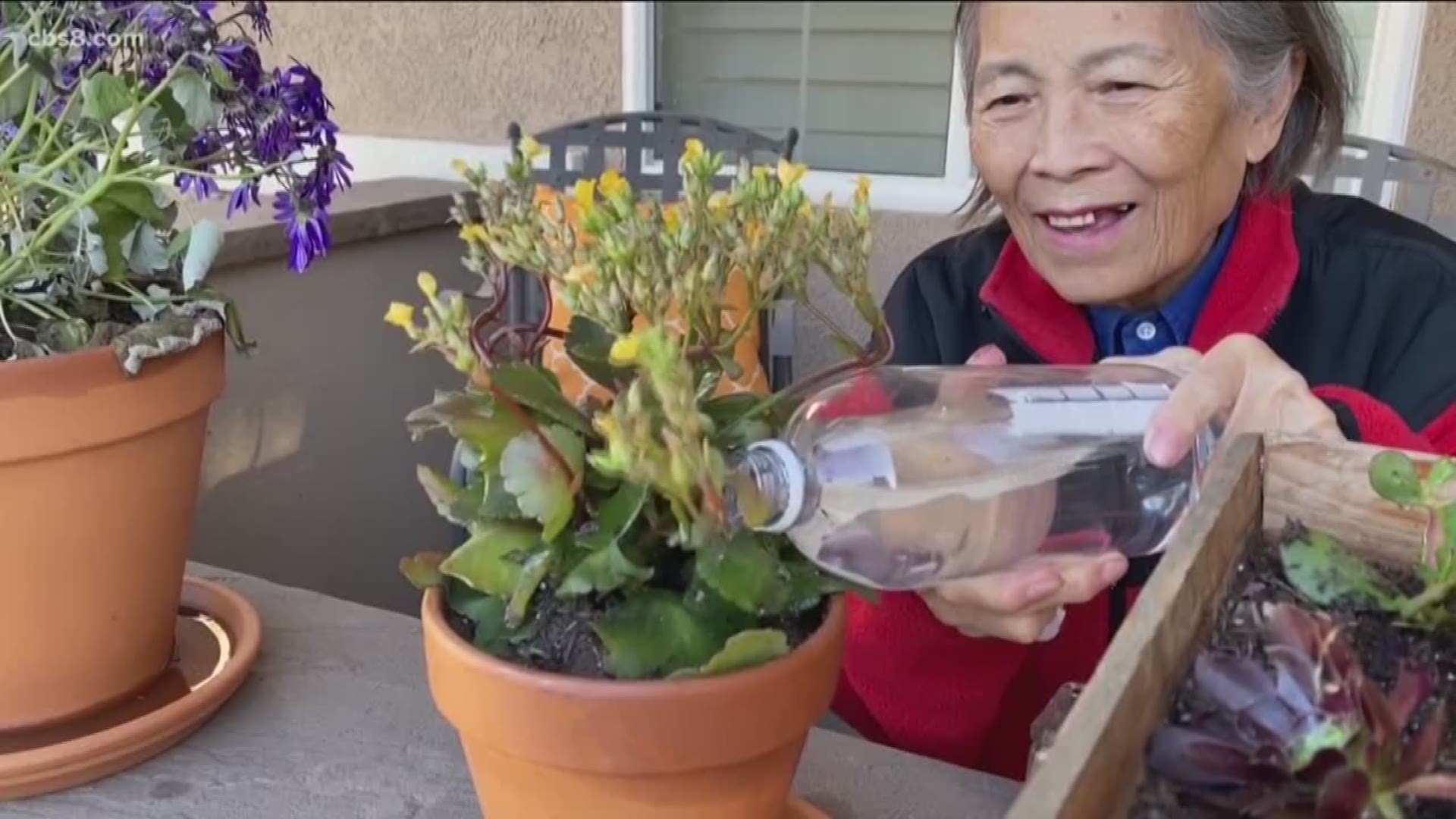SAN DIEGO —
People living with dementia or Alzheimer’s disease are facing unique challenges during the coronavirus pandemic. The stress has taken a toll on not only them but also their caregivers.
CBS News correspondent Nichelle Medina reports on how they’re getting through these difficult times and spoke with New 8’s Marcella Lee about some of the challenges and ways to cope.
Marcella has done stories on her mom's Alzheimer's diagnosis, and Nichelle is now sharing their experiences on a national platform with all CBS stations.
“This self-isolation period has her very confused,” Marcella said of her mom, 82-year-old Lucy Lee, who was diagnosed with Alzheimer's disease in April 2019. Marcella is her caregiver.
Beth Kallmyer of the Alzheimer's Association says right now it’s important to stimulate your loved one with simple and familiar things.
"A change in routine can cause somebody to wander that's never wandered before," she said.
Caregivers should also watch for increased confusion, focus on hygiene and handwashing for both themselves and their loved ones, and have a plan for care if they get sick.
"If you don't have that plan ahead of time, trying to manage that in a crisis is really challenging,” Kallmyer said.
The role of caregiver is challenging, one even more difficult during the coronavirus outbreak.
"I think I've answered the same question 100 times as to why I'm not working and why the kids aren't in school,” Marcella said.
Lucy enjoys looking through family photo albums and finds comfort in walks and board games with her grandkids. Marcella said caregivers also need to find time to unwind.
"It's really important for everyone right now to take care of their mental health, but especially for caregivers because it is an abundance of stress,” Marcella said.
While self-quarantine isn't easy, Lucy is adjusting to her new routine. With her family's help, she's finding new ways to connect to the outside world during these uncertain times, including doing video chats with people she can’t see in person right now.
The Alzheimers Association has a 24/7 help line to provide support during the pandemic. You can call 1-800-272-3900 to speak with a counselor or social worker.
If you live in San Diego, you can contact Alzheimer's San Diego at 1-858-492-4400. They have shifted their services online during the pandemic to offer counseling via phone and live chat, and educational webinars and support groups through Zoom. Their ALZ Companion program has been able to continue with virtual visits, and they recently launched a Volunteer Tech Team to help older adults get set up with new video communication tools.

